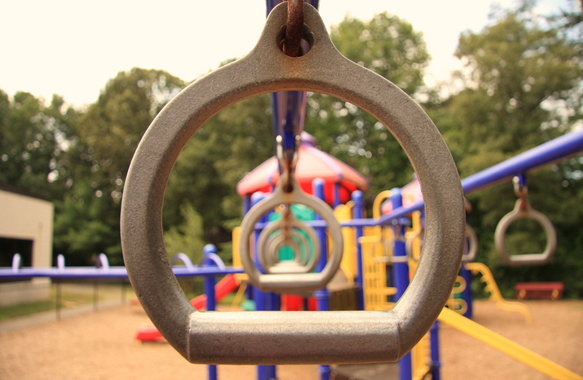By John Spencer | Originally Published at Medium. December 14, 2014 | Photo Credit: Allie at Flickr Creative Commons
I realize that P.E. might not seem as important as close reading, but look at our nation’s obesity epidemic. Look at our sedentary lifestyle. Could it be possible that maybe, just maybe, the electives classes aren’t the “fluff” they’re made out to be.
I get it. Reading scores are low in my district. And it’s not just the scores. Kids are struggling to read. They’re struggling to answer questions based upon what they read. They’re struggling to think critically about what they read. The problem is real.
However, the solution in my district has involved increasing time spent in reading instruction while decreasing the time spent on all other subjects. Kids used to have an elective class and a P.E. class each day. Now they have a reading class and a writing class and when that failed, we turned the writing class into a text-dependent question-answering classroom. Meanwhile, many social studies classroom have been transformed into close reading classrooms while science classrooms are places to learn and practice vocabulary rather than explore the world through inquiry-based labs.
In other words, the response to low reading skills has been to turn every other class into another reading class.
While this approach seems to make sense, it is actually accomplishing the opposite. When I think of strong informational readers, they are strong thinkers. They know how to engage in debate. They know how to how to apply the information to an actual problem. They know how to create a thesis and back it up with several sources. They know how to tap into prior knowledge. These are the things they learn in classes like social studies, science, tech ed, writing, art, music, and journalism.
When I think of strong students, I think of kids who want to be at school. I think of kids who are excited about what they’re learning. They’re driven by more than just stickers and badges. They’re finding meaning and purpose in information. They’re asking hard questions that can’t be answered in a close reading packet. Oftentimes, when we pull students out of electives, we are taking them out of the one area of school that they enjoy. We’re pulling them out of the one area where they might be succeeding. It’s no wonder they hate school.
So, when I say that I’m concerned that we’re pulling kids out of elective classes, it’s not an issue of professional respect. It has nothing to do with feeling undervalued as an electives teacher. The truth is that I want students to become strong readers. However, that’s precisely why they need real science and social studies and writing and elective classes. That’s the only way that they’ll develop into better readers.
John Spencer is a teacher, author, speaker, and incessant doodler. He is the co-author of Wendell the World’s Worst Wizard and the co-founder of Write About. He is passionate about helping students develop into better writers and deeper thinkers.
This piece was reprinted by EmpathyEducates with permission or license. We thank John Spencer for his kindness and perspective as a parent and Educator and Medium for excellent content.












Leave A Comment